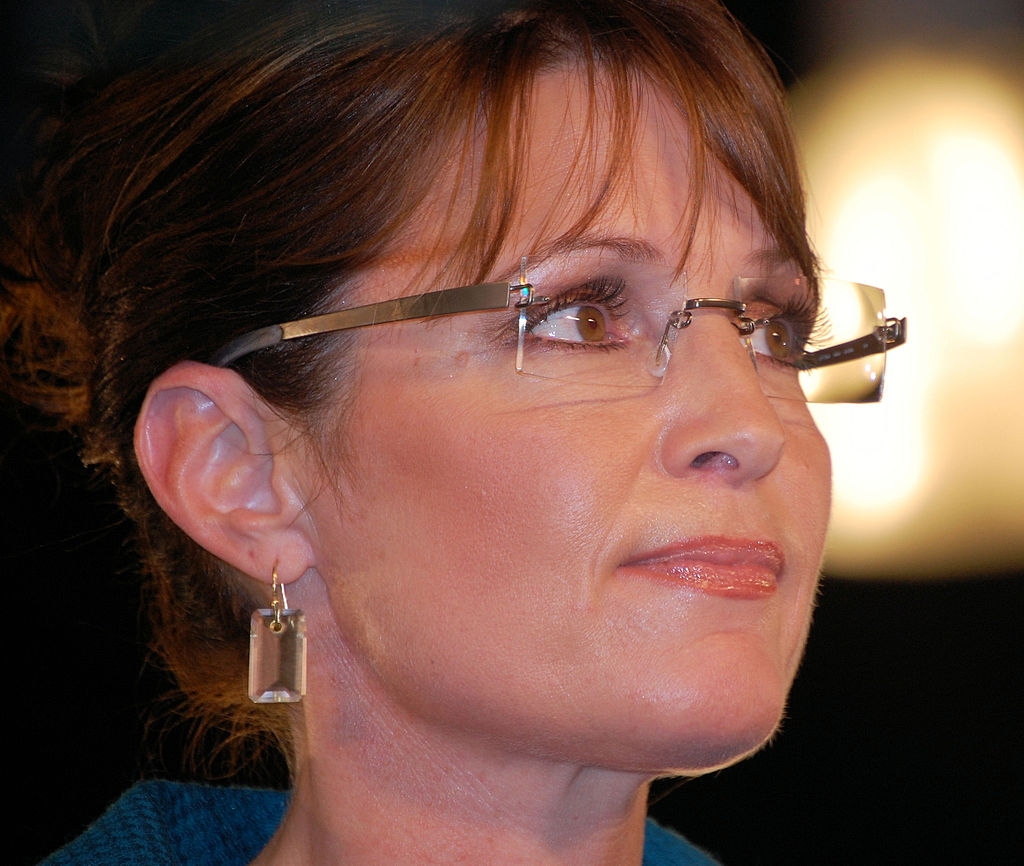That loud exhaling sound you heard last week was editors and news directors across the country collectively breathing a sigh of relief after hearing the outcome of Sarah Palin’s libel suit against the New York Times.
In two separate decisions, U.S. District Judge Jed Rakoff and a nine-person jury unanimously found the New York Times is not liable in a case of alleged defamation. The case involved a 2017 editorial, which inaccurately claimed that the man who wounded Rep. Gabrielle Giffords and killed six others in 2011 was incited by a map Palin’s political action committee made that showed gunsights over Giffords’ district, as well as several others. The Times corrected the error the next day calling it an honest mistake.

Sarah Palin | Photo via Wikimedia Commons by Therealbs2002
Why did Palin lose her case? As someone who previously ran for Vice President and held office as the Governor of Alaska, Palin is a public figure. According to the textbook definition of libel, which stems from the 1964 court ruling New York Times Company v. Sullivan, plaintiffs who are public figures or officials have to prove what is called “actual malice” – knowledge the outlet knew the information was false or showed reckless disregard for the truth. Private citizens need only to prove negligence to collect damages. Judge Rakoff and the jury ruled Palin’s lawyers hadn’t proved The Times intended to harm Palin.
”Debate on public issues should be uninhibited, robust and wide open.
Why is her loss significant? Libel laws are what make it possible for journalists to do their job without the fear of being sued by public figures in attempt to punish or intimidate them in retaliation. Reporters need to be able to keep a watchful eye on the actions of government and not avoid reporting on controversial subjects. As Supreme Court Justice William Brennan once said, “Debate on public issues should be uninhibited, robust and wide open.”
There are those who wish to get rid of or weaken New York Times Company v. Sullivan, including former President Donald Trump who said in 2016 he’d like to “open up our libel laws.” It is worth noting that two current Supreme Court justices, Justice Thomas and Justice Gorsuch have called for the Sullivan case to be reconsidered. Some saw Palin’s as a test case that would give the U.S. Supreme Court the chance to revisit libel law. However the fact that both a judge and a jury separately ruled against Palin makes that unlikely, despite some concerns that some jurors may have inadvertently learned of the judge’s dismissal of the case through alerts on their phones before they finished their deliberations.
Free press is not something we can ever take for granted. According to the 2021 World Press Freedom Index, journalism is completely or partially blocked in 74% of the 180 countries ranked by Reporters Without Borders. If you think the United States would be first on the list of nations that enjoy an unimpeded press, think again – it’s 44th – despite what the index said were greater improvements to government accountability and transparency shown in just the first 100 days of the Biden Administration. Earlier this year, legislatures in Iowa and Kansas changed longstanding rules to move journalists from the floor to a public gallery upstairs. A Foreign Policy Centre survey of 63 financial investigative journalists from 41 countries found that 71% have experienced threats and/or harassment while working on investigations into financial crime and corruption.

